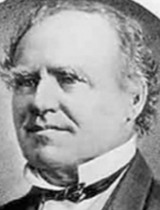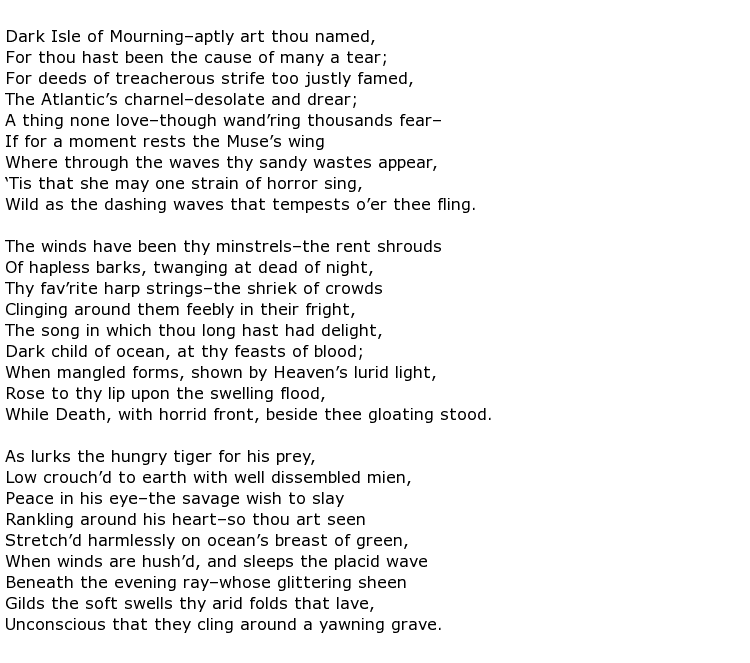 Joseph Howe, PC was a Canadian poet who was, perhaps, best known for his political achievements. As a member of the Queen’s Privy Council for Canada he was in a position to do great work for his country and proved to be both an able and a very popular politician. He was also known as a prolific poet and journalist throughout Nova Scotia, creating a notable body of work, much of it demonstrating his genuine love of Canada and also of Great Britain and her Empire. Unfortunately it seems that he was too busy to get his work published during his lifetime and it was left to his family to get a collection called Poems and Essays published after his death.
Joseph Howe, PC was a Canadian poet who was, perhaps, best known for his political achievements. As a member of the Queen’s Privy Council for Canada he was in a position to do great work for his country and proved to be both an able and a very popular politician. He was also known as a prolific poet and journalist throughout Nova Scotia, creating a notable body of work, much of it demonstrating his genuine love of Canada and also of Great Britain and her Empire. Unfortunately it seems that he was too busy to get his work published during his lifetime and it was left to his family to get a collection called Poems and Essays published after his death.
He was born on the 13th December 1804 in Halifax, Nova Scotia. His parents had travelled north from the United States at the end of the American Revolution and were Puritans who were fiercely loyal to Britain. They worked hard to instil those feelings into their son. He attended the Royal Arcadian School and grew up with ambitions to become a writer. Perhaps with this in mind he bought a newspaper called the Nova Scotian in 1827 and turned it into a very popular and long-lasting title. It was certainly to his advantage that his father had been in the printing business and he had passed on some of the requisite skills.
Eight years into his stewardship he found himself charged with seditious libel for reporting his suspicions about corruption amongst police and politicians in Halifax. Although the case was heavily stacked against him he was acquitted by a jury and this was seen as a milestone in the establishment of a free press. One of the many statements that he made in court was that the jury should “leave an unshackled press as a legacy to your children”.
He remained as editor until 1841 and made it his business to educate the people by writing intelligent articles on political matters, travel and nature subjects. He also published poetry and essays of his own, as well as other’s. His brush with the law had done him no harm and he was elected to the local Assembly the following year and thus began many years of notable achievement as a politician. Over forty years later, in 1873, Howe was appointed the third Lieutenant Governor of Nova Scotia. Tragically he only had three weeks to enjoy this honour before he died.
Of the many poems that he wrote about the natural features of Nova Scotia, one of the most poignant was Sable Island. It is about a thin strip of desolate land, a “dark isle of mourning”, which lies some one hundred miles of the coast and is frequently battered by the force of the Atlantic. He saw it as a romantic place and waxed lyrical about its beauty. Here are the opening verses of this poem:

Howe will be remembered as both a great figure in Canada’s literary history and also a pioneering politician. One of his many achievements was to head a bi-partisan railway commission which, from 1854, was responsible for the building of many miles of track between Halifax, Windsor and Truro.
Joseph Howe died on the 1st June 1873 at the age of 68.

